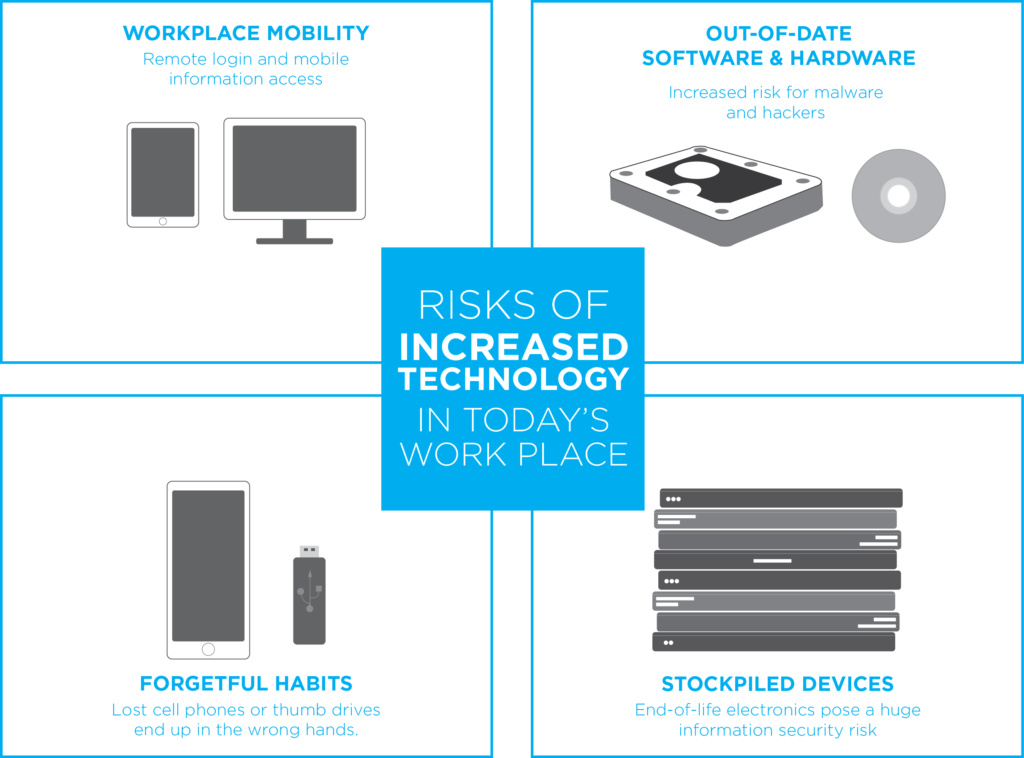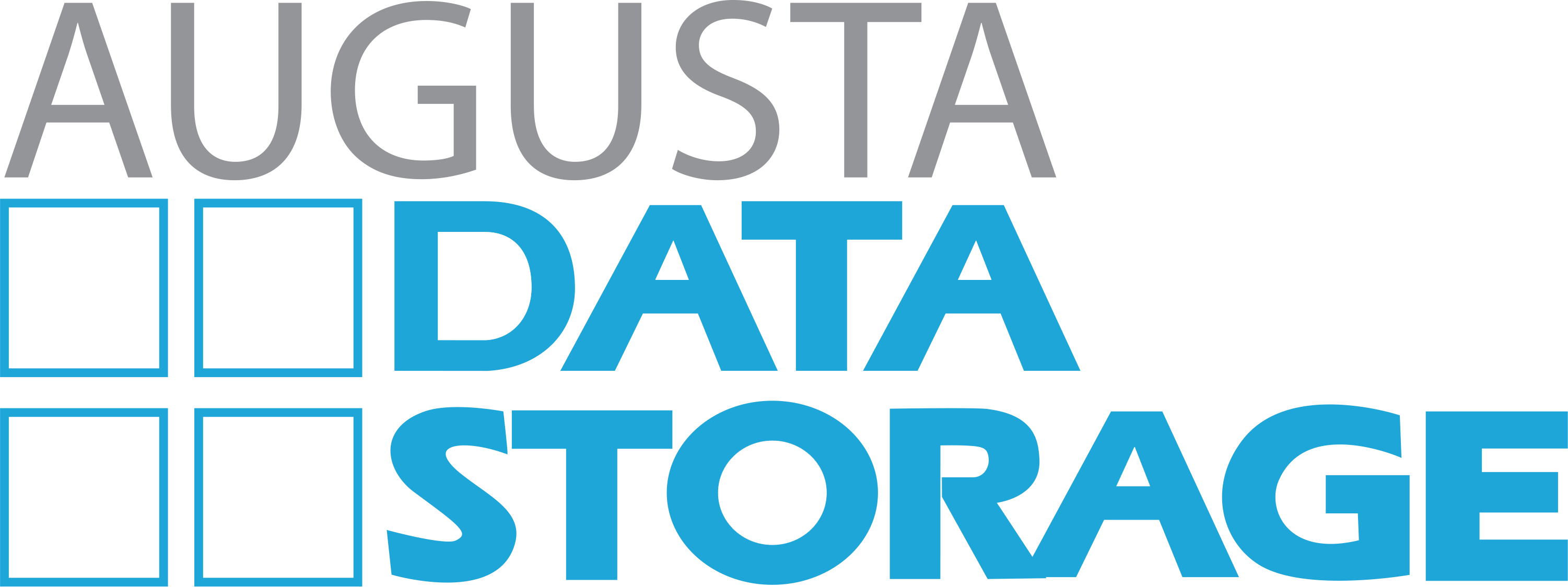Technology Risks Related to Information Security
Technology is an amazing thing, and for businesses, it can also be a dangerous one. With the rapid advancements in technology that we have seen in the last decade, it’s no surprise that the lifetime for consumer and business-based electronic devices is shortening. Items that used to be out of date after four or five years are seeing the end of their life after about 2 years. With advancements in chip technology, cloud based computing, and more, technology only serves to become more powerful in the coming years. This trend leaves more and more technology devices obsolete each day, posing a large threat for businesses and their information.
Think about all the things you do on your computer each day, from business to personal information, your computer’s internal workings see it all. The same goes for other smartphones and tablets. All of that information is logged internally and when you decide it’s time to upgrade, what happens to your now “out- of-date” electronics? Where do they go?
Now think in terms of storage, do you store items on thumb drives and portable hard drives? What happens if you misplace that? Did you know that a study in the UK found that over the course of a year some 22,000 USBs/thumb drives/memory devices were found in dirty laundry at the cleaners? And during the same period they found close to 1,000 mobile phones. Imagine the information that could be unearthed if those got into the wrong hands.
So, as a business owner, have you considered how rapid advances in technology can affect the information security of your business? Here are a few things you might want to consider as you work to develop a plan to protect your company’s digital assets.

- Out of Date Software/Hardware: As technology advances, so do hackers. By not keeping your software or hardware up to date, you run the risk of hackers finding easier access to your digital assets. Make sure to run updates and constantly work to strengthen firewalls and other safeguards within your computer networks. Between 70-80% of the top 10 malwares detected can be avoided with correctly updated software
- Forgetful Habits: It’s human nature, sometimes we forget the thumb drive in our pants pocket, or our cellphone on the table at the coffee shop, but that doesn’t mean you shouldn’t work hard to build safeguards for those items, as tedious as it may seem. Make sure to password protect phones, and files on storage devices, and if it can be avoided work to keep secure information off of portable storage devices.
- Workforce Mobility: With the increase in workforce mobility over the last few years the amount of data that can be accessed outside of secure networks has greatly increased. Think of all the secure information that might go out in an email, which is possibly delivered to a smartphone or tablet, or the number of remote site workers who have access to sensitive information on a regular basis. All of these things can lower your information security levels.
- Storing Outdated Technology: Most businesses and organizations recognize the threat of improperly disposing of technology devices, in regards to information security. However, that does not mean that they have created a secure solution to deal with the problem, with more and more companies letting outdated computers, laptops, and mobile devices collect dust in a closet or storage area, with minimal security safeguards to protect the equipment.
What can you do to manage your technology better? Develop a process.
Create a policy that addresses how your organization will deal with technology changes in the future, how you will implement changes, keep things up to date etc., and how you will handle the out-of-date technology when the time comes.
If you or your organization happen to be sitting on a stockpile of outdated electronics, we can help! Augusta Data Storage offers a variety of electronic waste solutions that are both secure and environmentally friendly. Contact us today to see how we can help you dispose of items such as:
- Hard Drives
- Server Drives
- Memory Boards
- Back-Up Tapes
- Cell Phones and Tablets
- Keyboards & Mouse
- Computer Accessories
- Network Routers
- Switches & Modems
- Monitors & CRT Devices
